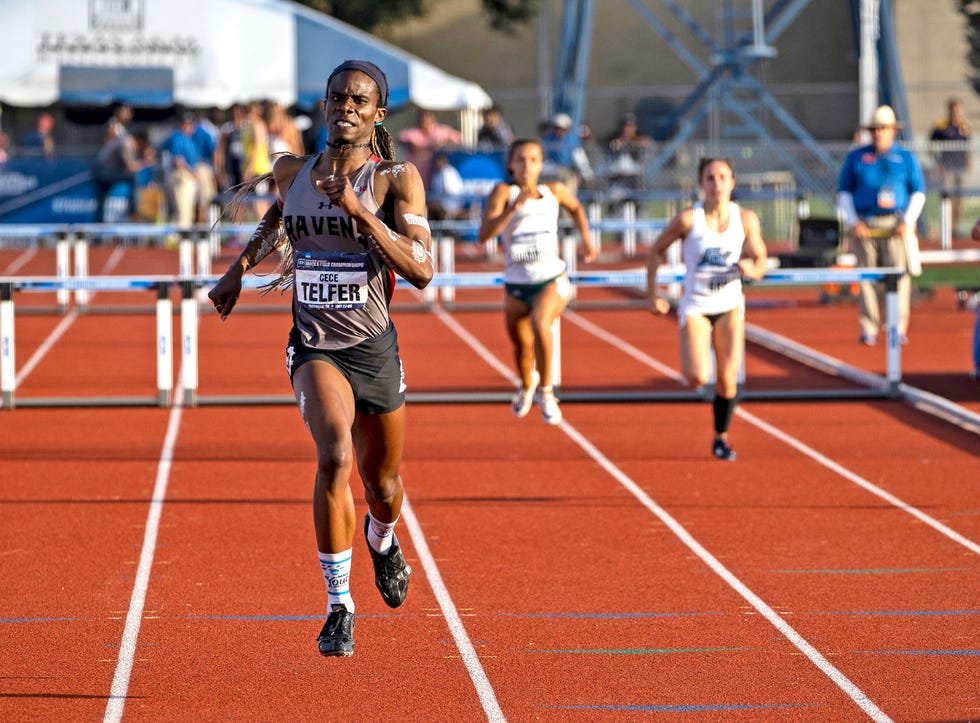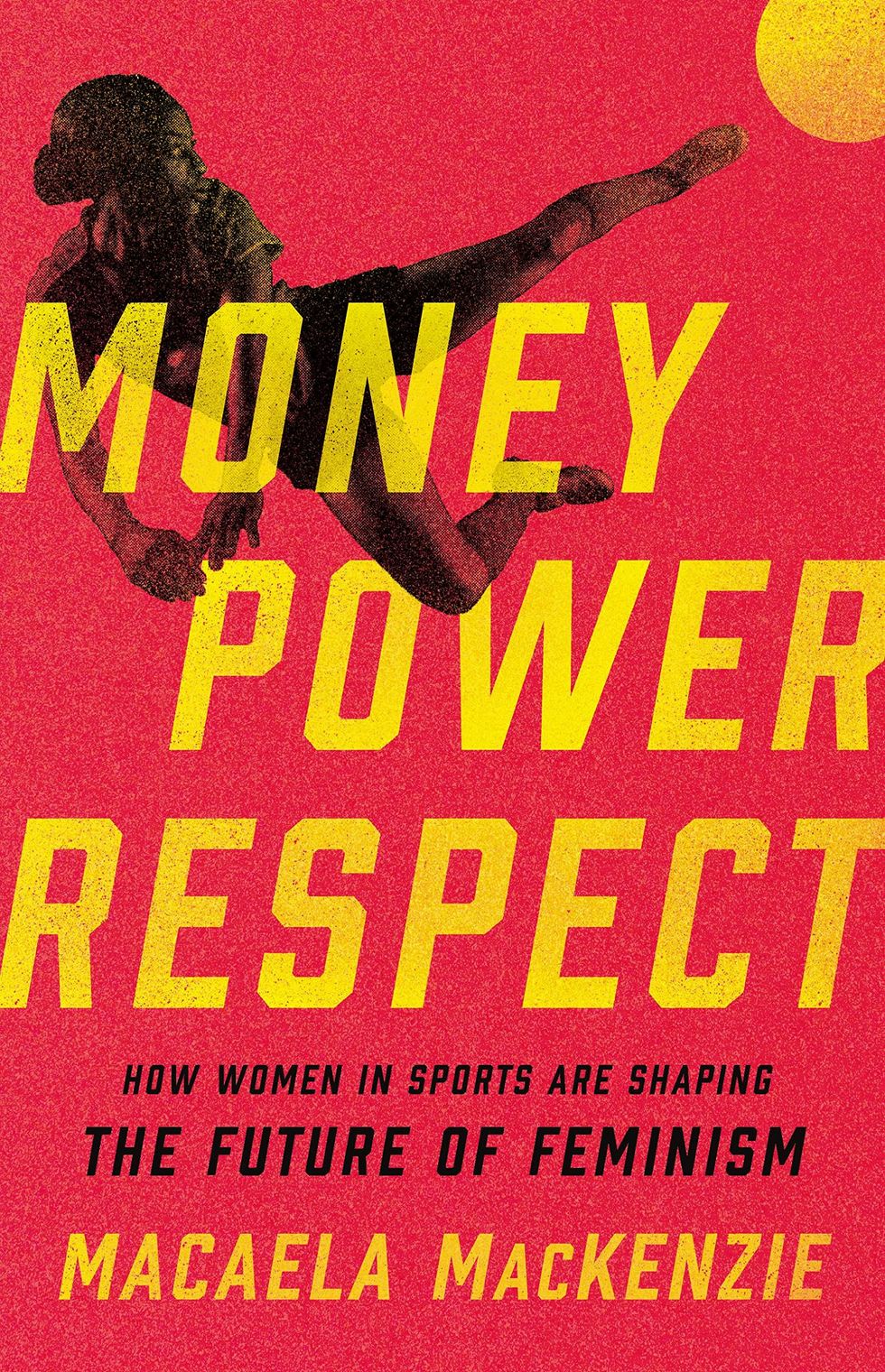Protecting Women’s Sports Means Protecting Trans Women Athletes
In Money, Power Respect: How Women In Sports Are Shaping the Future of Feminism, journalist Macaela MacKenzie takes a look at how sports shape culture and why the fight for equality in sports—from equal pay, to the ownership gap, to the motherhood penalty—has big implications for us all.
In the abbreviated excerpt below, she tells the story of CeCé Telfer, the first out trans athlete to win an NCAA track and field title, and explores how the debate surrounding trans inclusion in sports affects women.
“Every single day when I wake up and put on my sports bra, the first thing I think about is that I could go onto the track and somebody could just take me out,” says CeCé Telfer, a NCAA Division II champion runner. Telfer is transgender and is the first out trans woman to win an NCAA track and field title—a fact that became relevant to her running career when she began medically transitioning in 2017 and made her first appearance in competition as herself in 2018. Telfer just wanted to run—to do the thing that made her feel free and allowed her to explore her potential—but she found herself the subject of intense internet hate after Donald Trump Jr. tweeted an article referring to her as a “biological male” and claiming her success was a “grave injustice to so many young women.”
The tweet instantly made Telfer a global target. “I know that society hates me,” she says. That thought terrifies her every time she steps out on the track. “The thought that keeps me going is that now that I am able to be myself, I cannot hold back no matter how hard it is and no matter the fear in my heart,” she says. “Because representation matters.”
The phrase “representation matters” has been so overused it’s in danger of becoming a commodified husk of a once powerful idea à la “girl power” or “empowerment.” But hearing CeCé talk about why representation matters for her shows us why it’s still such a vitally necessary form of activism, and why sports is such an important platform for it. “I need to not back down because there is a little girl out there that is confused about who she is and not sure if she should continue living her life because there’s nobody else out here that looks like her,” she says.
The potential of trans representation in sports is so powerful that it’s become a wedge issue for opponents of transgender rights who’ve turned competitions, from after-school sports all the way up to the Olympics, into forums for heated debate about what it means to be a woman and who gets to make that decision. At least 34 states have introduced bills aiming to ban transgender youth from sports; they’ve already been enacted in at least 18 states.
Bills like this throw the full weight of the law behind policing women’s bodies, keeping trans women and girls from receiving the mental, physical, and social benefits of sports participation, and ultimately denying all transgender people their humanity. Perversely, many of them attempt to use Title IX—the law that opened the doors to women in sports—to do it.
In June 2022, Republican lawmakers in Ohio passed the “Save Women’s Sports Act,” a bill that bans the participation of transgender girls in sports and would require any girl “accused” or “suspected” of being transgender to undergo an examination of her genitals. An early version of Florida’s “Fairness in Women’s Sports Act,” enacted in 2021, also gave schools the authority to make teen girls submit to genital exams as a means of enforcement (though that power thankfully did not make it into the final law). Everything about this is deeply unsettling, but perhaps the most concerning is the fact that a law giving schools the right to indiscriminately examine girls’ genitals is being billed as a means of protecting girls.
Make no mistake: these lawmakers are not concerned with “protecting” women or ensuring fair competition; they are about policing women’s bodies. And that goes for all women’s bodies. “What does a trans woman look like? Can you see her transness? Because if you can’t, then every woman on this planet is a threat to women’s sport,” says Telfer.
Any girl seen to be too strong, or too tall, or too good at her sport, can be violated on the suspicion that she might be transgender. “The notion that you can say well we’re just talking about transgender women athletes and just draw a line around that? Don’t kid yourself,” says Ellen J. Staurowsky, a professor of sports media at Ithaca College in New York. “We are talking about women and women’s place in this society and these laws are an example of just how vulnerable those boundaries are.”
Excerpted from Money, Power, Respect: How Women in Sports are Shaping the Future of Feminism by Macaela MacKenzie. Copyright © 2023. Available from Seal Press, an imprint of Hachette Book Group, Inc.
Macaela MacKenzie is a journalist who writes about women and power. She covers women’s equality through the lenses of sports, wellness, and the gender gap across industries and is the author of MONEY, POWER, RESPECT: How Women in Sports Are Shaping the Future of Feminism. Mac was most recently a Senior Editor at Glamour where she directed all health and wellness coverage. Her work has appeared in Elle, Glamour, SELF, Bustle, Marie Claire, Allure, Women’s Health, and Forbes among other publications.



